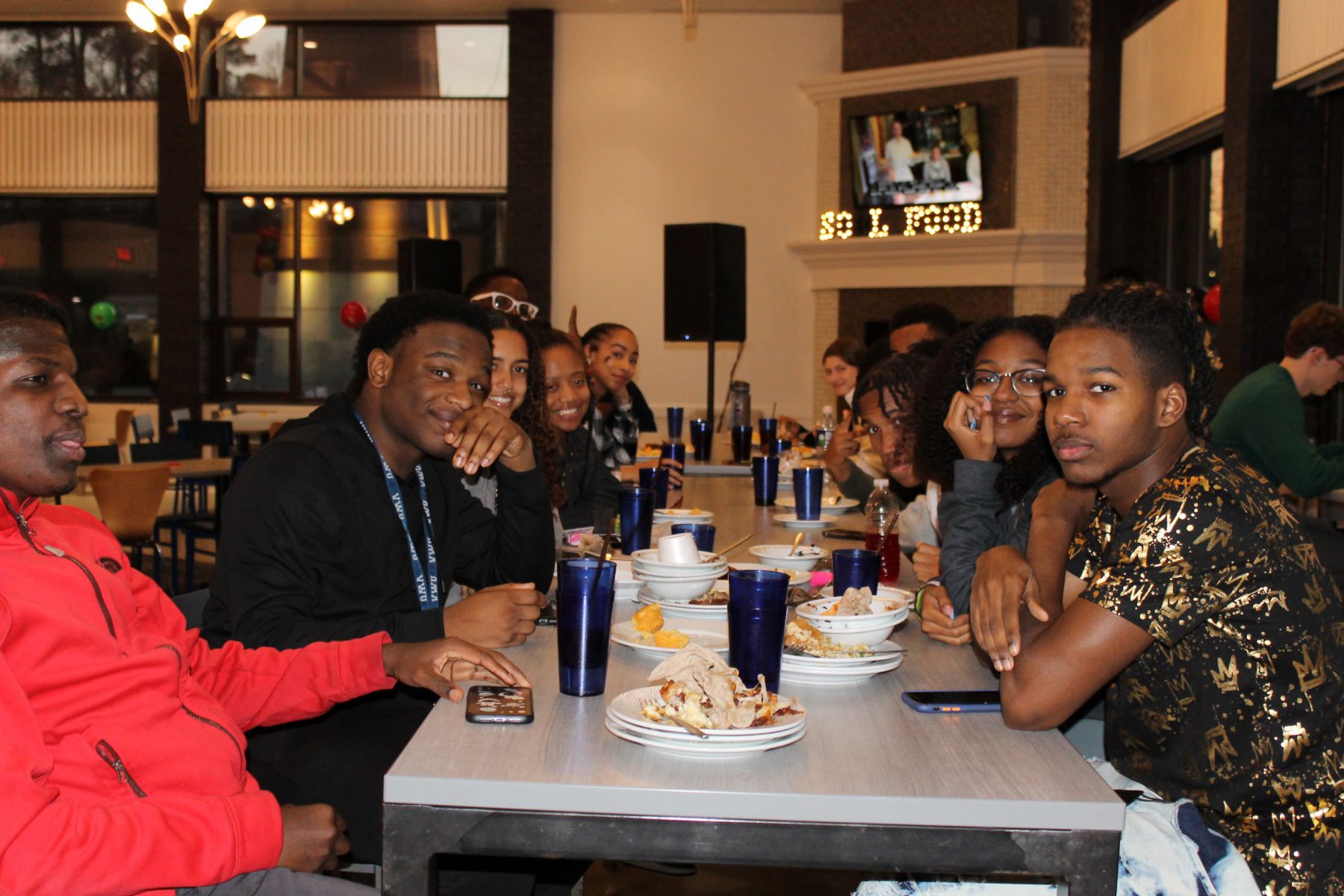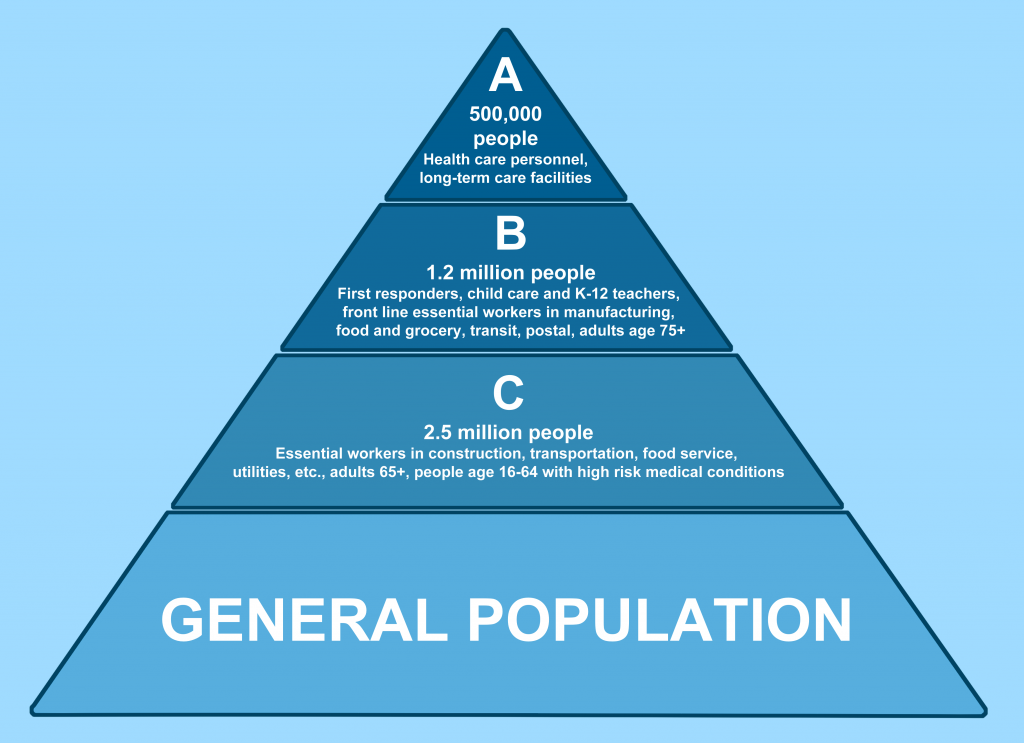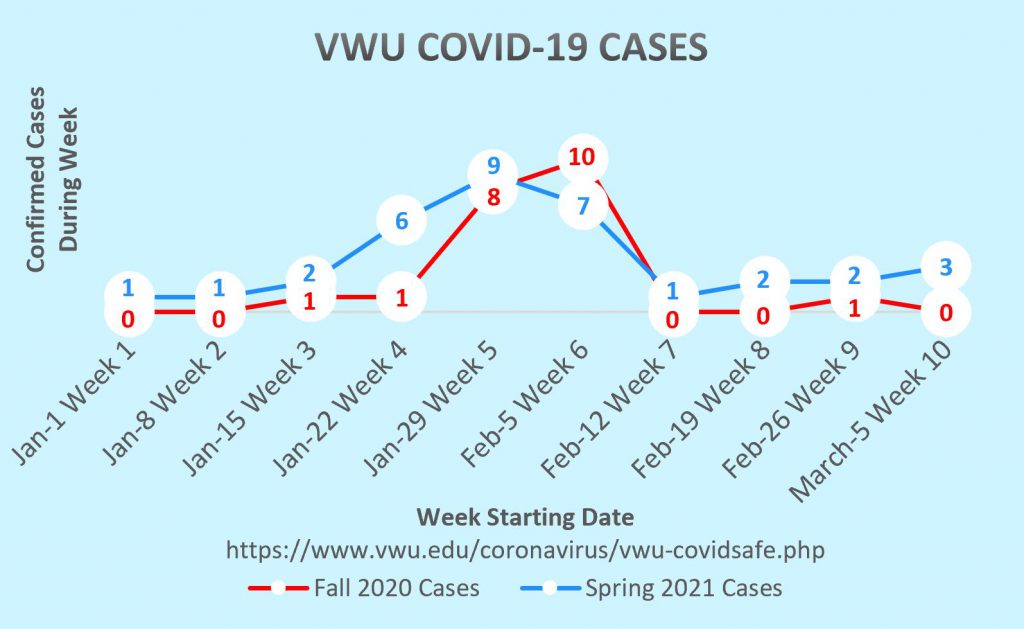Featured Image: Students attend “Soul Food Night” in Boyd Dining Center, organized by BSU. Ross Winner | Marlin Chronicle
Black History Month can offer freedom of expression to communities and have a variety of meanings to different people. On campus and as a whole, it is much more than just another month, as said by the Black Student Union Advisor and Residence Life Village Assistant Jalen Anderson. When asked how this month feels compared to others, Anderson said, “It’s very empowering. You can just feel the difference for this whole month.”
The power of Black History Month is evident in the events being planned to celebrate. On Feb. 24, the Black History Gospel Choir is hosting a motivation worship service. The Black Student Union and the Africana Studies program are also planning events to honor this month. This month is not only about the events, but also how some students and faculty on campus think about Black History Month and Black history as a whole and what it means for the campus community.
Senior and President of the Black Student Union Jordan Gilliam said, “During Black History Month, we’re all a little happier and we’re joking more; we see each other more just around the campus even today.”
For Gilliam, the sense of community is incredible. “I’m talking to somebody by people whose names I don’t know, just off the top of my head, like I don’t have a personal relationship with him,” Gilliam said, “But we started having conversations today, just because there’s Black History Month events going on today.”
The Black Student Union not only wants to help give the Black community a voice, but also to support Black students and boost their sense of community on an already community-centered campus.
“We are another group that can be another ally for you know we can be the extra study buddy for you,” Anderson said. “We can be the extra friend you need to talk to if you need it but also it could be the support group as a culture of being Black Student Union.”
The leadership of the Black Student Union has a goal of leading young African Americans to a better future on campus and within society, which requires strong and passionate leaders.
“What it means to be the president for me is that I get to lead my generation of African Americans into what we hope to be the better future that we all kind of look forward to,” Gilliam said.
Anderson agreed as he described the passion needed to lead in the Black Student Union. “You’ve got to have a passion for people, gotta have a passion for what the cause is,” Anderson said, “Building the name ‘Black Student Union’– just that in itself is a very empowering thing.”
The Black Student Union is not the only program empowering and educating people on campus. The Africana Studies program offers many different classes and courses teaching students about literature, history, political science and sociology, all relating to African American history, Africa and the African diaspora.
Author and Professor of African American History Dr. Kathleen Casey discussed how she felt learning more about this topic and how it gave her a better understanding of not only herself but history as well.
“Somewhere along the way, I also realized that, for me, my place in life did not really make sense without this historical context. I found a sense of community in learning about people in the past,” Casey said.
Casey acknowledged her own privilege and hardships. “I am white and very privileged in many ways, but as a queer woman, I was interested in how marginalized and minoritized people came up with strategies to survive and thrive in oppressive circumstances,” Casey said.
Casey also spoke on how African American history is American history. She said that it is important to realize that it’s impossible to get the full idea of American history without understanding the impact that Black people had on it.
Casey said, “Honestly, I’m glad people are finally catching on that this is the case. It is impossible to understand American history without centralizing the experiences of people of color and for way too long, most people didn’t seem to get that. But however you identify, this is your history, and you’re depriving yourself of something critical if you ignore that.”
By Cyril Coefield
ccoefield@vwu.edu


